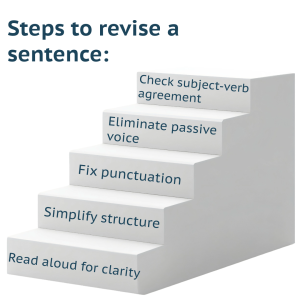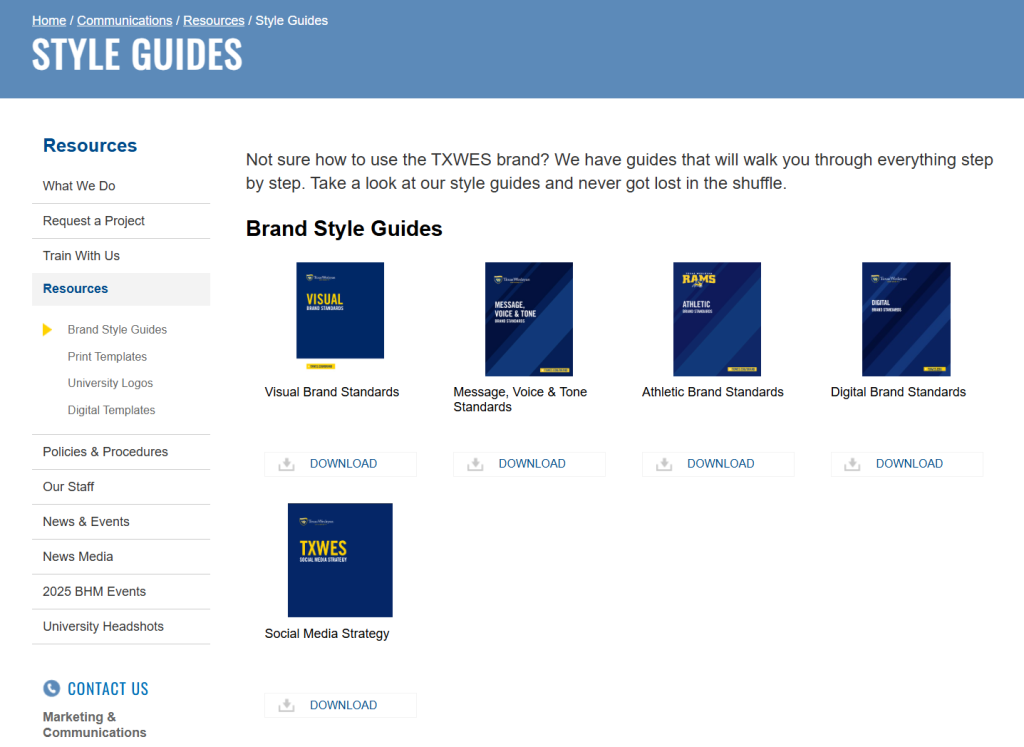5. Review Grammar, Punctuation, and Mechanics for Professional Writing
Let’s face it: grammar and punctuation probably don’t top your list of exciting topics. You might even break out in a cold sweat at the thought of dangling participles, misplaced modifiers, or, heaven forbid, commas. But before you start reliving those traumatic high school grammar lessons, relax. This section isn’t about making you memorize tedious rules or testing you on obscure grammar trivia. Instead, it’s about giving you practical tips and straightforward advice to keep your business writing polished, professional, and free from embarrassing mistakes.
Think of grammar, punctuation, and mechanics as the final layer of polish on your communication masterpiece. Without proper grammar and punctuation, your carefully crafted message can quickly unravel, leaving readers confused, amused, or worse—doubting your credibility. Nobody wants that. Let’s tackle these essential skills confidently, and (dare we say it?) enjoyably.
 Grammar Essentials: Keep It Simple and Professional
Grammar Essentials: Keep It Simple and Professional
Great grammar isn’t about impressing your readers with fancy sentence constructions or obscure linguistic terms. It’s about clarity, precision, and avoiding common mistakes that derail your professional credibility.
Common Grammar Mistakes (and How to Avoid Them)
Mistake #1: Subject-Verb Agreement (Sounds complicated, but it isn’t)
Simply put, your subject (who or what your sentence is about) must match your verb. Singular subjects take singular verbs; plural subjects take plural verbs.
Incorrect: “The team are ready for the presentation.”
Correct: “The team is ready for the presentation.” (Team is singular.)
Quick tip: Identify your main subject and make sure the verb matches.
Mistake #2: Pronoun Confusion (Who did what?)
Pronouns replace nouns, but confusion often arises when the pronoun reference isn’t clear.
Confusing: “Jake told Steve that he was late.” (Who was late—Jake or Steve?)
Clear: “Jake told Steve, ‘You are late.'”
Quick tip: Always clarify pronouns or repeat the noun if necessary.
Mistake #3: Dangling or Misplaced Modifiers (Sounds painful, but easily fixable)
Modifiers (descriptive phrases) must modify the intended noun.
Incorrect: “Walking into the meeting, the laptop battery died.” (The laptop walked?)
Correct: “Walking into the meeting, I noticed my laptop battery had died.”
Quick tip: Ensure descriptive phrases directly modify the correct noun.
Punctuation Power: Tiny Marks with Huge Impact
Punctuation might seem trivial, but these little marks dramatically impact clarity and professionalism. Proper punctuation gives your writing rhythm, clarity, and professionalism—poor punctuation does the opposite.
|
Comma Basics: Breathe Life into Your Sentences (Not Confusion) Commas clarify your sentence structure and guide readers through your writing. |
Apostrophes: Showing Possession and Contraction Apostrophes seem small, but misuse them, and your writing quickly loses credibility. |
Colons and Semicolons: Advanced Tools Made Simple
Colons introduce information clearly and professionally: Use a colon to introduce lists or explanations: |
|
Use commas to: Separate items in lists: “We need paper, pens, and staples.” Set off introductory clauses: “After reviewing the report, we made several changes.” Separate non-essential information: “Our CEO, Jane Smith, approved the policy.” |
Incorrect: “Our customers opinion’s matter.” Correct: “Our customers’ opinions matter.” Incorrect: “Its important to follow protocol.” Correct: “It’s important to follow protocol.” (It’s = it is) |
Semicolons link related thoughts in a professional, polished way: Use semicolons between closely related independent clauses: |
Mechanics: Polish the Small (But Crucial) Details
Mechanics cover formatting, spelling, capitalization—small details that significantly impact readability and professionalism.
Capitalization: Keep It Consistent
Follow basic capitalization rules:
Proper nouns (names, companies, places): “Microsoft,” “Chicago,” “Dr. Brown”
Job titles when used before a name: “Marketing Director Alex Thomas”
Titles of publications, reports, and documents: “Annual Report 2024”
Numbers: When to Spell Them Out (Or Not)
Keep your numbers professional by following these simple rules:
Spell out numbers below 10: “We hired three new employees.”
Use numerals for numbers 10 and above: “We received 15 applications.”
Quick Tips for Grammar, Punctuation, and Mechanics Success
Tip 1: Read Your Writing Aloud
You’ll catch awkward sentences, confusing punctuation, and grammar mistakes more easily by reading your work out loud.
Tip 2: Take a Break Before Proofreading
Fresh eyes catch errors quickly and effectively. Draft your document, step away, then return later for proofreading.
Tip 3: Use Technology Wisely
Grammar-checking tools (like Grammarly or Hemingway Editor) identify basic mistakes quickly, but always verify manually to avoid trusting them blindly.
Tip 4: Keep a Simple Style Guide
Create or follow a simple company style guide outlining preferred grammar, punctuation, and mechanics usage, keeping everyone consistent.
Texas Wesleyan University has style guides for Visual Brand Standards, Message, Voice & Tone, Athletic Brand, and Digital Brand

Real-World Example: Grammar, Punctuation, and Mechanics Makeover
Let’s transform an unclear, grammatically messy paragraph into polished, professional writing:
Original (unclear and unprofessional):
“After reviewing the documents mistakes were found in the finance departments report, it’s clear there needed to be more thorough editing. The teams accuracy needs improved immediately and also their communication.”
Revised (clear grammar, punctuation, and mechanics):
“After reviewing the documents, we found mistakes in the finance department’s report. Clearly, the team needs to improve both accuracy and communication immediately.”
See the difference? Clear grammar, precise punctuation, and consistent mechanics instantly elevate your professional credibility.
Final Thoughts: Grammar, Punctuation, and Mechanics Matter (Really!)
Sure, grammar, punctuation, and mechanics might not seem exciting—but their impact on your professional credibility is huge. Clear grammar and punctuation ensure your readers understand your message exactly as you intend. Solid mechanics reinforce your professionalism and attention to detail.
The good news? You don’t need to memorize complex rules or linguistic trivia. Keep your writing clear, consistent, and professional by focusing on these straightforward tips. Your readers will appreciate it—and your credibility will soar.
Congratulations—you’ve mastered the essentials of professional grammar, punctuation, and mechanics. Your writing now shines with clarity, professionalism, and polish.
Ready to wrap up Chapter 3 and move forward with confidence? Let’s summarize everything, so you can start communicating with clarity, impact, and professionalism immediately!
